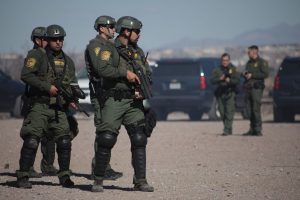By: Jeanelle Gomez, 2L
Whether the Constitution applies abroad continues to be left unclear. And in recent years, globalization has dramatically shifted the traditional notions surrounding territorial borders. Ideas and individuals now cross borders with ease like never before. Nations increasingly act beyond its borders affecting citizens and non-citizens abroad. While this discussion was traditionally limited to international law, modern times reveal a need for a constitutional answer. There is grave uncertainty lurking behind whether (and when) the Constitution applies abroad.
On August 3, 1985, the U.S government obtained a warrant for the arrest of Rene Martin Verdugo-Urquidez—a citizen and resident of Mexico. The complaint charged Verdugo-Urquidez with various offenses, all related to narcotics. Because Verdugo-Urquidez was not physically present in America, U.S. marshals cooperated with Mexican police officers to secure his arrest. Months later, Mexican police officers apprehended Verdugo-Urquidez and transported him to the U.S. Border Patrol station located in California. Despite having probable cause for his arrest, DEA agents arranged for searches of Verdugo-Urquidez’s homes to obtain more evidence against him. But there was a slight problem. Verdugo-Urquidez did not live within the U.S. Both of his homes were located in Mexico. Nonetheless, the DEA agents received approval from Mexican authorities to conduct the searches. However, the agents failed to obtain one (very) important thing. A warrant.
In United States v. Verdugo-Urquidez, the Supreme Court held that a Mexican citizen was not entitled to the protections under the Fourth Amendment simply because his homes were searched outside the borders of the U.S. The government imposed an obligation on Verdugo-Urquidez. It required him to uphold and respect U.S. criminal law or suffer the consequences. Yet, the government sidestepped its duty in return. It failed to abide by its own limitations, those imposed by the warrant requirement of the Fourth Amendment.
After Verdugo-Urquidez, it appeared that constitutional rights simply do not apply abroad. But, in Boumediene v. Bush, the Court held that enemy combatants detained in Guantanamo Bay, Cuba had a constitutional right to seek habeas corpus relief under Article I of the Constitution. The Boumediene Court confused the trajectory.
Just a few months ago, the Court was given an opportunity to clarify the confusion. On February 25, 2020, the Supreme Court decided Hernandez v. Mesa, which dealt with the tragic story of a fifteen-year-old teen who lost his life at the hands of U.S. Border Patrol in a cross-border shooting. This time, the Court refused to grant the right to a Bivens action because the shooting took place across the border. And the “political branches” are better-suited to address international concerns than the judiciary…There is not only grave uncertainty. But unworkable standards.
How can constitutional protections apply differently depending on the type of right at stake? How can the applicability of the Constitution depend on whether the right is vested in Article I or the Bill of Rights? Why does the nature of the inquiry change? There really is no clear answer. And Supreme Court precedent only adds to the confusion.





